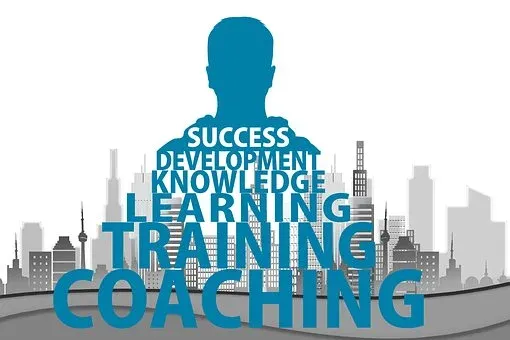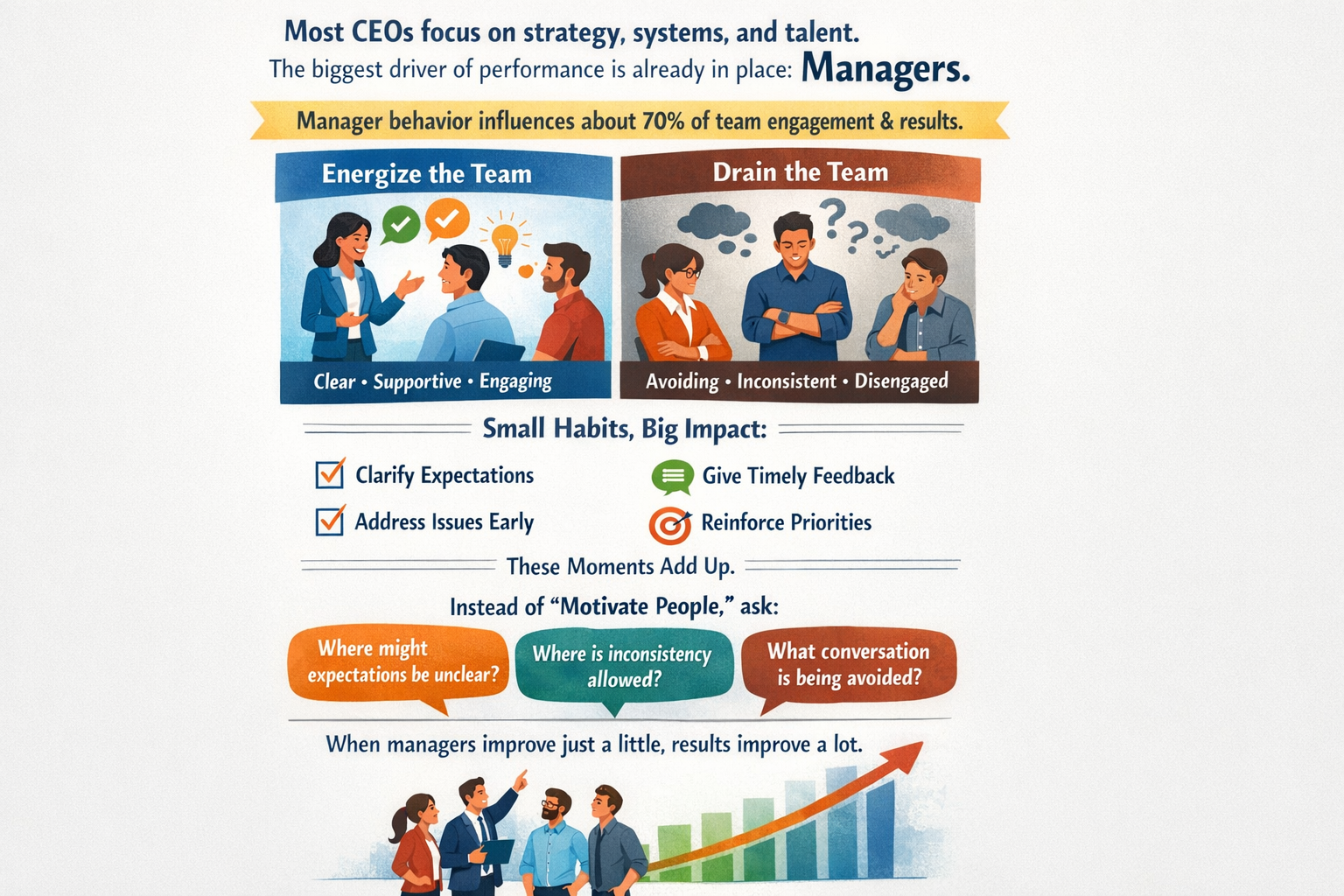Why Coaching your Employees Makes a BIG DIFFERENCE

You may know that coaching your employees on an ongoing basis will increase their performance, reduce the line of people outside your office door, and reinforce training. Here is an interesting statistic – after employees receive training, they only implement about 10% of what is learned without ongoing follow-up and coaching.
Effective coaching of your employees will result in more confident, better trained, and more engaged employees. Coaching, rather than telling, creates future capacity in your employees. Here are some of the benefits:
- Employees are encouraged to succeed in their roles, surpass their goals, and sometimes are surprised at how much more effective they have become.
- It increases engagement – employees feel heard and that their contribution is valued.
- Your employees are coached to find solutions and answers themselves, leading to solid leadership skills and good behaviors.
- Employees become more motivated.
- Morale is increased throughout teams as each employee is equipped with more skills and confidence.
There are challenges for Managers wanting to coach rather than instruct. Ongoing coaching of your team will empower them to be more effective, creative, and confident. This helps your bottom line. Like all skills, developing coaching skills requires training and reinforcement from the organization. The reasons why it is challenging to implement coaching include:
- Managers lack knowledge about how to do it effectively.
- It feels time-consuming.
- Managers are often promoted based on technical skills, and coaching can feel awkward to them.
There is an accessible 12 step format to effective ongoing employee coaching:
- Give employees regular, frequent feedback. Employees crave constructive feedback from their managers. Look at our previous articles on providing positive and corrective feedback.
- Create a culture of feedback within your team. Encourage employees to provide feedback to each other and you.
- Push your employees by motivating them to get out of their comfort zone and perform to their potential. Their abilities and confidence will grow.
- Be open to employee ideas. We have previously talked about asking open-ended questions. When employees feel their opinion is respected and valued, they are more likely to be engaged and push harder.
- Encourage employees to learn from others. Connecting with their peers opens new possibilities and creates a more connected team. Encourage employees to learn from others.
- Ask employees for their opinions. This creates an open dialogue, encourages employee input, and provides an opportunity to coach.
- Build confidence. Confident employees achieve goals. Look for ways to coach each employee to set reasonable goals and recognize them for their strong performance and extra effort.
- Don’t do their work for them. If an assignment is going sideways, it is tempting to take it into your own hands and complete it. Instead, coach them on how to handle the situation by using open-ended questions to help them navigate through possible solutions to come to the best outcome.
- Tolerate and support failure. Do a second look. Make every failure a learning opportunity. Review what went wrong and talk through how to succeed in the next project.
- Recognize employees often. Don’t forget to celebrate success frequently. Little acknowledgments go a long way toward securing buy-in and building a stronger team. Praise much more often than you offer suggestions for improvement.
- Identify goals with the employees. Be clear about your expectations. See our recent goal-setting article for tips on how to do this.
- Ask what you can do to help. Let your team know they can come to you for help, AND use open-ended questions to help them arrive at their solutions after some brainstorming with you.
Coaching your employees is key to increasing output, engagement, and morale. Your job as a manager is to enable the success of each member. Next week we will provide some examples of effective coaching dialogue.


